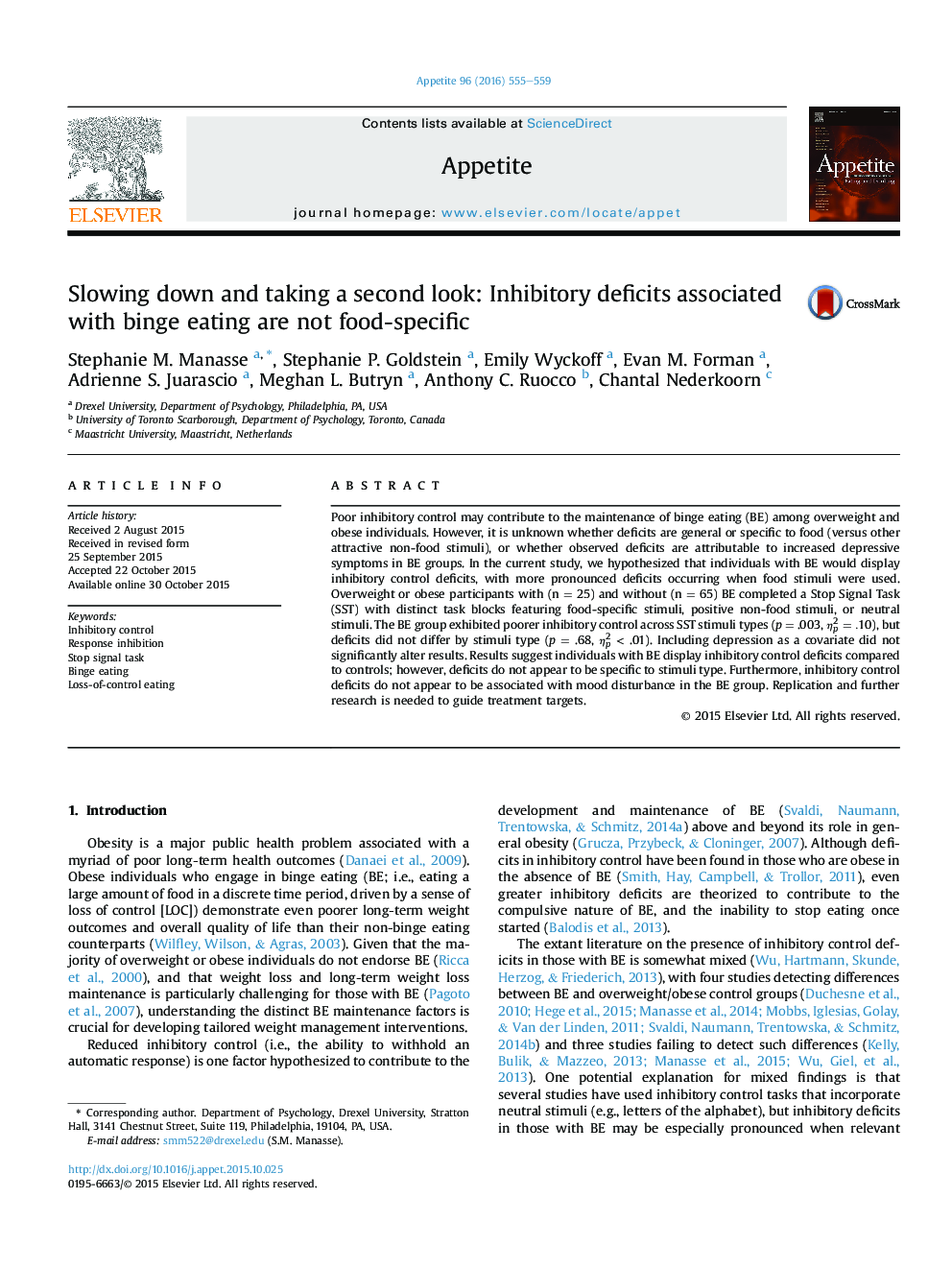| کد مقاله | کد نشریه | سال انتشار | مقاله انگلیسی | نسخه تمام متن |
|---|---|---|---|---|
| 7308511 | 1475384 | 2016 | 5 صفحه PDF | دانلود رایگان |
عنوان انگلیسی مقاله ISI
Slowing down and taking a second look: Inhibitory deficits associated with binge eating are not food-specific
ترجمه فارسی عنوان
کاهش و در نظر گرفتن دوم: کمبود مهاری در ارتباط با غذا خوردن غذا خاص نیست
دانلود مقاله + سفارش ترجمه
دانلود مقاله ISI انگلیسی
رایگان برای ایرانیان
کلمات کلیدی
کنترل مهار، مهار پاسخ کار سیگنال توقف خوردن غذا، از دست دادن کنترل خوردن،
موضوعات مرتبط
علوم زیستی و بیوفناوری
علوم کشاورزی و بیولوژیک
دانش تغذیه
چکیده انگلیسی
Poor inhibitory control may contribute to the maintenance of binge eating (BE) among overweight and obese individuals. However, it is unknown whether deficits are general or specific to food (versus other attractive non-food stimuli), or whether observed deficits are attributable to increased depressive symptoms in BE groups. In the current study, we hypothesized that individuals with BE would display inhibitory control deficits, with more pronounced deficits occurring when food stimuli were used. Overweight or obese participants with (n = 25) and without (n = 65) BE completed a Stop Signal Task (SST) with distinct task blocks featuring food-specific stimuli, positive non-food stimuli, or neutral stimuli. The BE group exhibited poorer inhibitory control across SST stimuli types (p = .003, ηp2=.10), but deficits did not differ by stimuli type (p = .68, ηp2 < .01). Including depression as a covariate did not significantly alter results. Results suggest individuals with BE display inhibitory control deficits compared to controls; however, deficits do not appear to be specific to stimuli type. Furthermore, inhibitory control deficits do not appear to be associated with mood disturbance in the BE group. Replication and further research is needed to guide treatment targets.
ناشر
Database: Elsevier - ScienceDirect (ساینس دایرکت)
Journal: Appetite - Volume 96, 1 January 2016, Pages 555-559
Journal: Appetite - Volume 96, 1 January 2016, Pages 555-559
نویسندگان
Stephanie M. Manasse, Stephanie P. Goldstein, Emily Wyckoff, Evan M. Forman, Adrienne S. Juarascio, Meghan L. Butryn, Anthony C. Ruocco, Chantal Nederkoorn,
